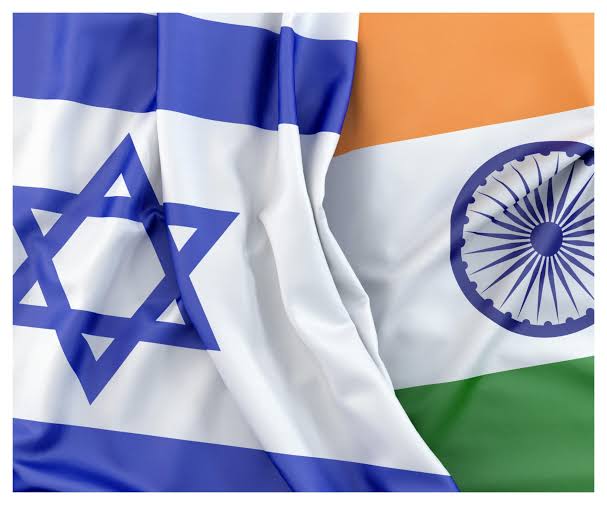A recent Chinese article has put a spotlight on emerging India-Israel axis of threat. This story appeared on a WeChat account called South Asia Research Bulletin. The article, translated from an earlier post, carried the title “The Dangerous India-Israel Alliance: Does India Want to Become a Second Israel?”
The timing of the article is important. It came out while the world was focused on the increasing tension between Israel and Iran. Chinese media has been discussing the possible global effects of this conflict.
China Sounds Alarm on India-Israel Axis
They pointed out that the two countries share what they called “similar ideologies.” According to them, both countries have been following systems based on controlling regions and excluding certain groups. They highlighted that this connection could shape policies that might not be in the best interest of peaceful global relations.
The Chinese post attracted attention because it tried to link India’s growing friendship with Israel to major shifts in South Asian politics. It claimed that this friendship was not just about weapons or security but about sharing long-term political ideas.
India Ditches F-35 and Su-57 Talks, Powers Ahead with Homegrown AMCA Stealth Jet
India’s Military Deals with Israel Under Spotlight
It noted that India has been using several high-tech Israeli weapons, such as the Harop drones and the Barak-8 missile systems. These weapons are said to play an important role in India’s defense plans.
The Harop drones are known for their ability to fly for long periods and attack moving targets on their own, while the Barak-8 missile system is a modern air defense shield. These systems have become important parts of India’s defense plans.
There were also claims that Indian companies are helping send weapons to Israel during its conflict with Gaza. The shipments were reportedly moving quickly, with some routes possibly involving large business groups in India. This part of the article drew special attention, as it suggested India’s support for Israel could be more active than previously thought. India-Israel Axis emerged during the active conflicts.
The China pointed out that the relationship has become more than just buying weapons.
The cooperation between India and Israel is not limited to buying and selling military equipment. India is also studying Israel’s security models and tactical strategies.
For example, Israel’s long-standing approach to securing its disputed territories is seen by some Indian policymakers as a possible blueprint. Reports show that Indian officials and researchers have closely followed how Israel uses settlements, surveillance, and tight border controls to manage security issues.
Some Indian experts believe that Israel’s strategies can be adapted to India’s security challenges, especially in sensitive areas like Kashmir. This shared learning goes beyond hardware and enters the field of planning, monitoring, and managing contested regions.
Bomb vs. Bunker: Israel Hits Hard but Iran’s Deepest Nuclear Site Stands Firm
From Support for Palestine to Strategic Shift
Historically, India was seen as a strong supporter of Palestine. India’s earlier foreign policy was often connected to supporting countries that had experienced colonization. The Chinese editors noted that India once stood firmly against colonial powers and was known for speaking up for nations facing occupation.
However, India’s current partnership with Israel seems to go against its earlier position. The post called this a “moral reversal,” suggesting that India’s actions now appear to support a country accused of harming another group.
The Chinese platform used this point to question India’s current path. It stated that a country that once opposed colonial behavior is now working closely with a nation that faces serious international criticism. According to the Chinese post, this shift is significant and cannot be ignored in South Asian discussions.
The rapid growth in India-Israel relations marks a clear shift in India’s global trade and political direction.
India once had strong historical ties to nations supporting anti-colonial movements and was seen as a friend to oppressed groups. However, India’s expanding trade with Israel shows that it is now working closely with countries that face serious international criticism, especially regarding military actions in conflict zones.
This change is important. It shows that India is adjusting its trade and defense priorities. India is no longer just following its past traditions. It is now building new partnerships that offer direct benefits, such as advanced military tools and shared security knowledge.
The strong trade routes, ongoing military deals, and rising technology sharing indicate that India and Israel are set to continue working together for the foreseeable future.

